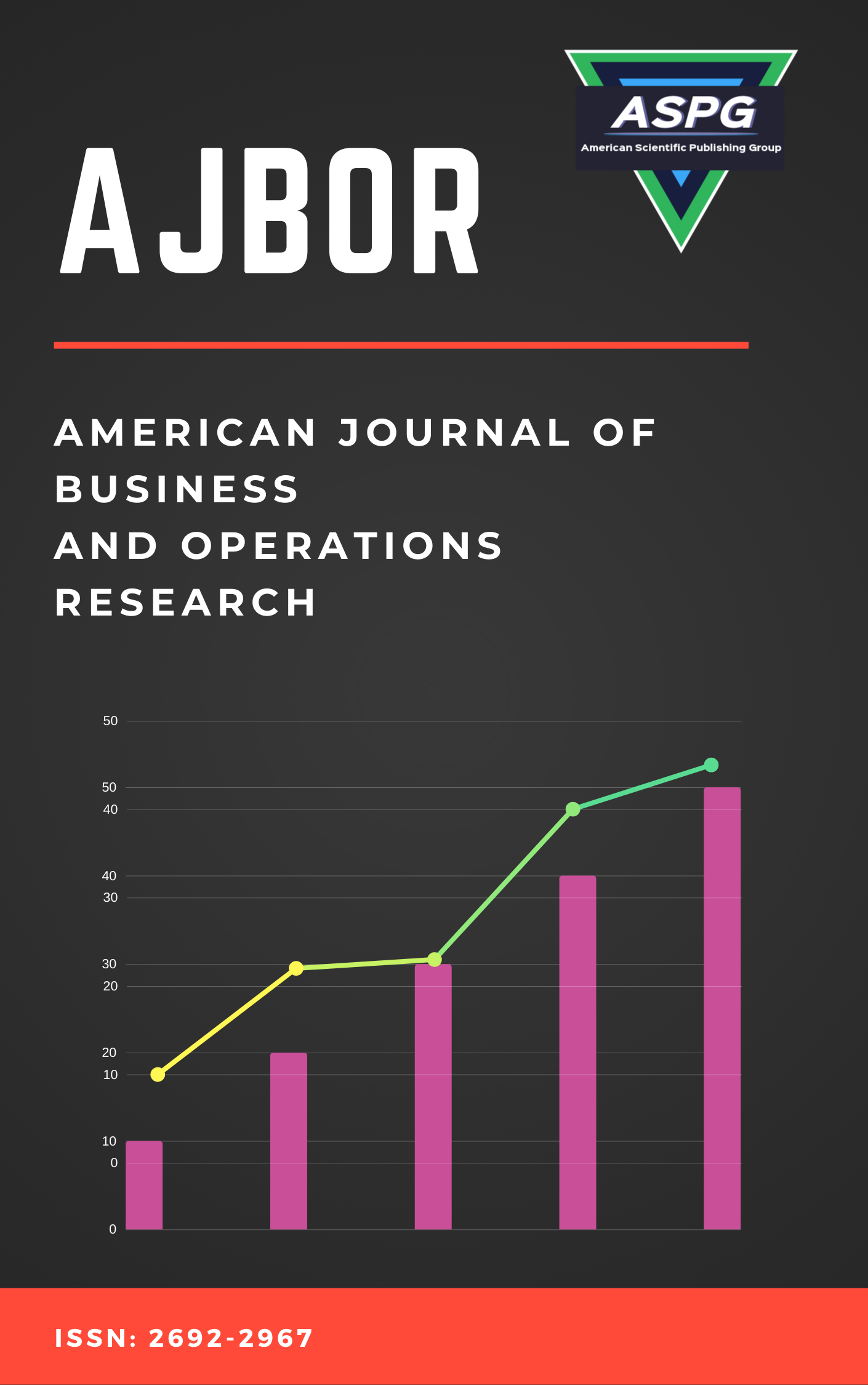

Volume 6 , Issue 2 , PP: 39-47, 2022 | Cite this article as | XML | Html | PDF | Full Length Article
Irsa Sajjad 1 * , Wareesha Khan 2 , Raja Habib 3
Doi: https://doi.org/10.54216/AJBOR.060204
Although there has been a vast increase in nutritional knowledge, a healthy dietary pattern is still established due to a lack of knowledge, availability, and accessibility. Even if vegetables are consumed higher percentage of starchy vegetables is consumed hence a balanced and adequate diet is still not followed. This research collected data from different cities of Pakistan via a questionnaire which was filled both face to face as well as online. The sample size was 60 with 10 people from each group. Data was collected majorly in form of a food frequency questionnaire and then percentages and frequencies were calculated for all food groups. In age groups 3-12 years there was a higher consumption of beverages both hot and sweet and nuts and seeds were consumed in higher amounts. On the other hand, the age group 13-18 consumed more fruits and vegetables. Similarly, when moving to age 19-25 and 26-40 there is a higher consumption of milk and milk products. Cereals are consumed most by adults of age 41-60 years and 60+ leaned more towards sweets and snacks. Women tend to consume a more calorie-dense diet than men. Also, children and older adults rely more on sweets and snacks rather than fruits, vegetables, and other nutrient-dense foods.
Diet , Food groups , Gender , Age groups , Food Frequency Questionnaire
[1] Bezerra, I. N., Goldman, J., Rhodes, D. G., Hoy, M. K., Moura Souza, A. d., Chester, D. N., Martin,
C. L., Sebastian, R. S., Ahuja, J. K., Sichieri, R., & Moshfegh, A. J.(2014). “Difference in adult food
group intake by sex and age groups comparing Brazil and United States nationwide surveys”. Nutrition
journal, 13: 74.
[2] Cavadini, C., Siega-Riz.A. M., Popkin. B. M. (2000). “US adolescent food intake trends from 1965
to 1996”. Archives of Disease in Childhood. 83: 18-24.
[3] Enns, C.W., Mickle. S.J., Goldman. J.D. (2002). “Trends in food and nutrient intakes by children in
the United States”. Family economics and nutrition review. 14 (2): 56-68.
[4] Gatenby. J. S. (1997), “Eating frequency: methodological and dietary aspects”. British Journal of
Nutrition.77(1): 7-20.
[5] Kovalskys, I., Rigotti, A., Koletzko, B., Fisberg, M., Gómez, G., Herrera-Cuenca, M., Cortés
Sanabria, L. Y., Yépez García, M. C., Pareja, R. G., Zimberg, I. Z., Del Arco, A., Zonis, L., Previdelli,
A. N., Guajardo, V., Moreno, L. A. And Fisberg, R. (2019). “Latin American consumption of major
food groups”. Results from the ELANS study. PLoS ONE. 14(12): e0225101.
[6] Micha, R., Khatibzadeh, S., Shi, P., Andrews, K. G., Engell, R. E., Mozaffarian, D., & Global
Burden of Diseases Nutrition and Chronic Diseases Expert Group (NutriCoDE) (2015). “Global,
regional and national consumption of major food groups in 1990 and 2010: a systematic analysis
including 266 country-specific nutrition surveys worldwide”. BMJ open, 5(9): e008705.
[7] Murakami, K., Shinozaki, N., Livingstone, M., Fujiwara, A., Asakura, K., Masayasu, S., & Sasaki,
S. (2020). “Meal and snack frequency in relation to diet quality in Japanese adults: a cross-sectional
study using different definitions of meals and snacks”. The British journal of nutrition, 124(11):1219–
1228.
[8] Murakami, K., & Livingstone, M. B. (2016). Associations between Meal and Snack “Frequency and
Diet Quality in US Adults: National Health and Nutrition Examination Survey 2003-2012”. Journal of
the Academy of Nutrition and Dietetics, 116(7): 1101–1113.
[9] Nasreddine, L., Hwalla, N., Sibai, A., Hamzé, M., & Parent-Massin, D. (2006). “Food consumption
patterns in an adult urban population in Beirut, Lebanon”. Public health nutrition, 9(2): 194–203.
[10] Robin, L. (2007). “Childhood obesity: food, nutrient, and eating-habit trends and
influences”. Applied Physiology, Nutrition, and Metabolism. 32(4): 635-645.